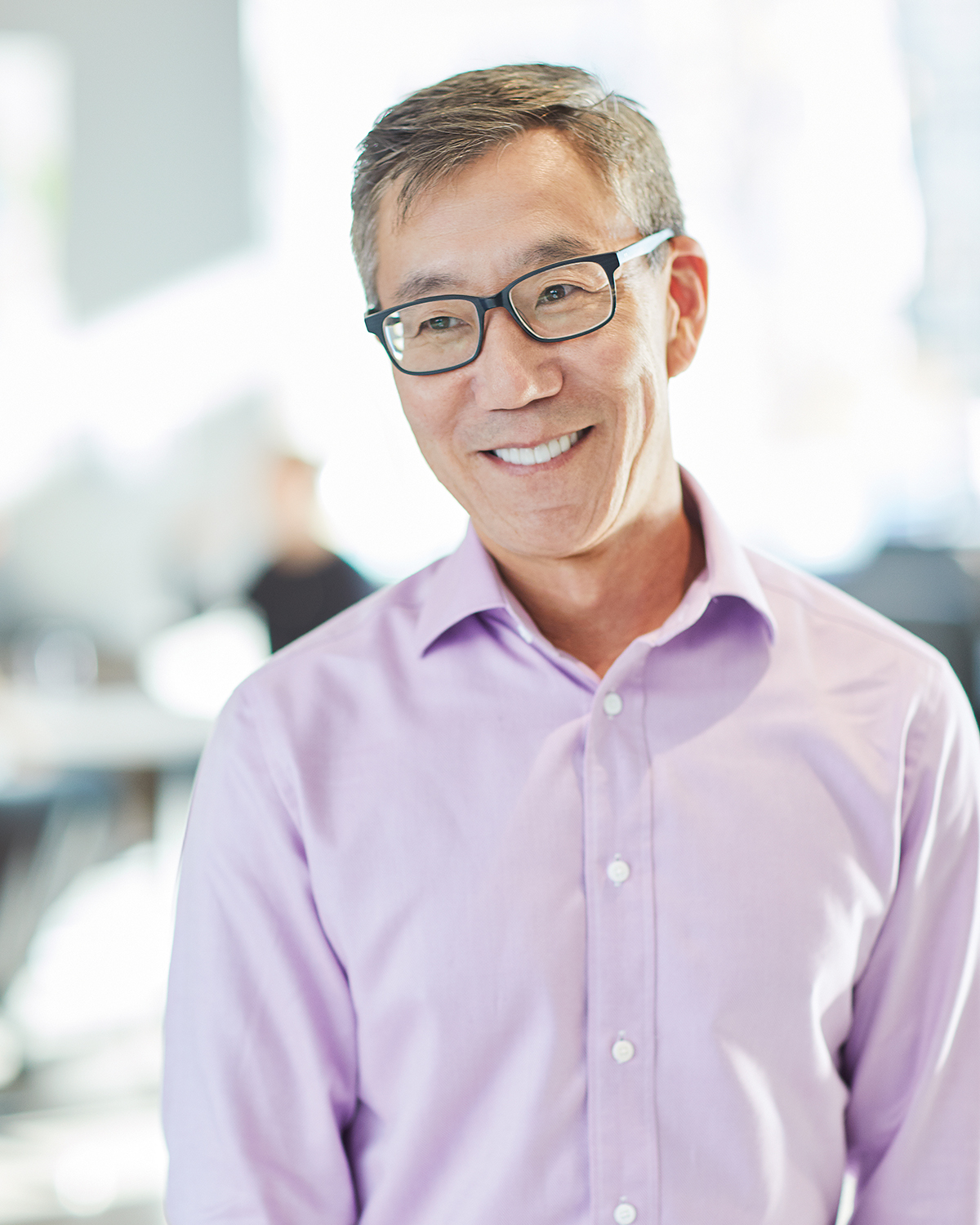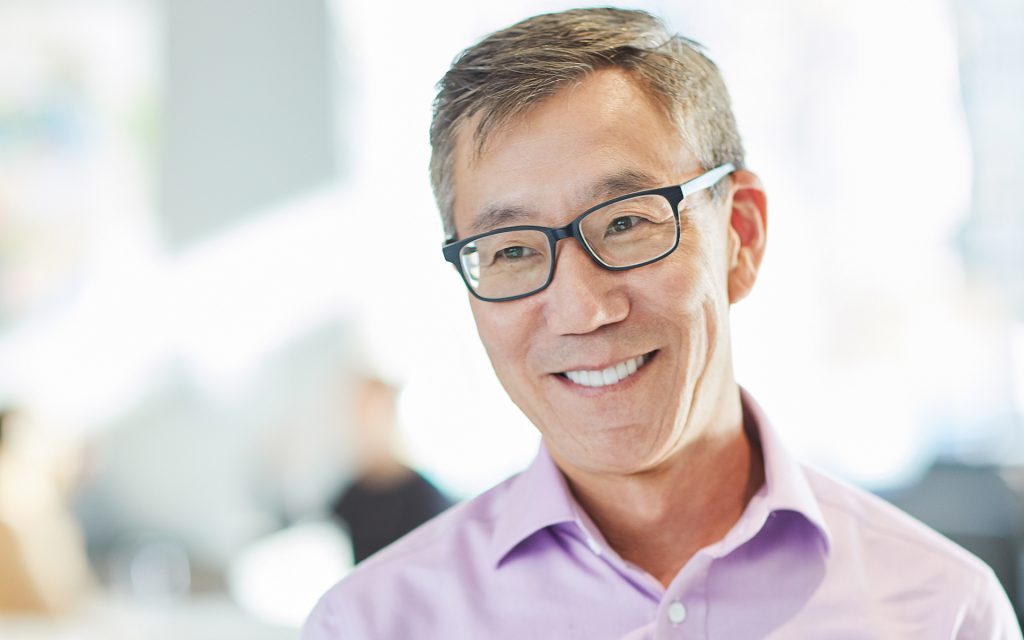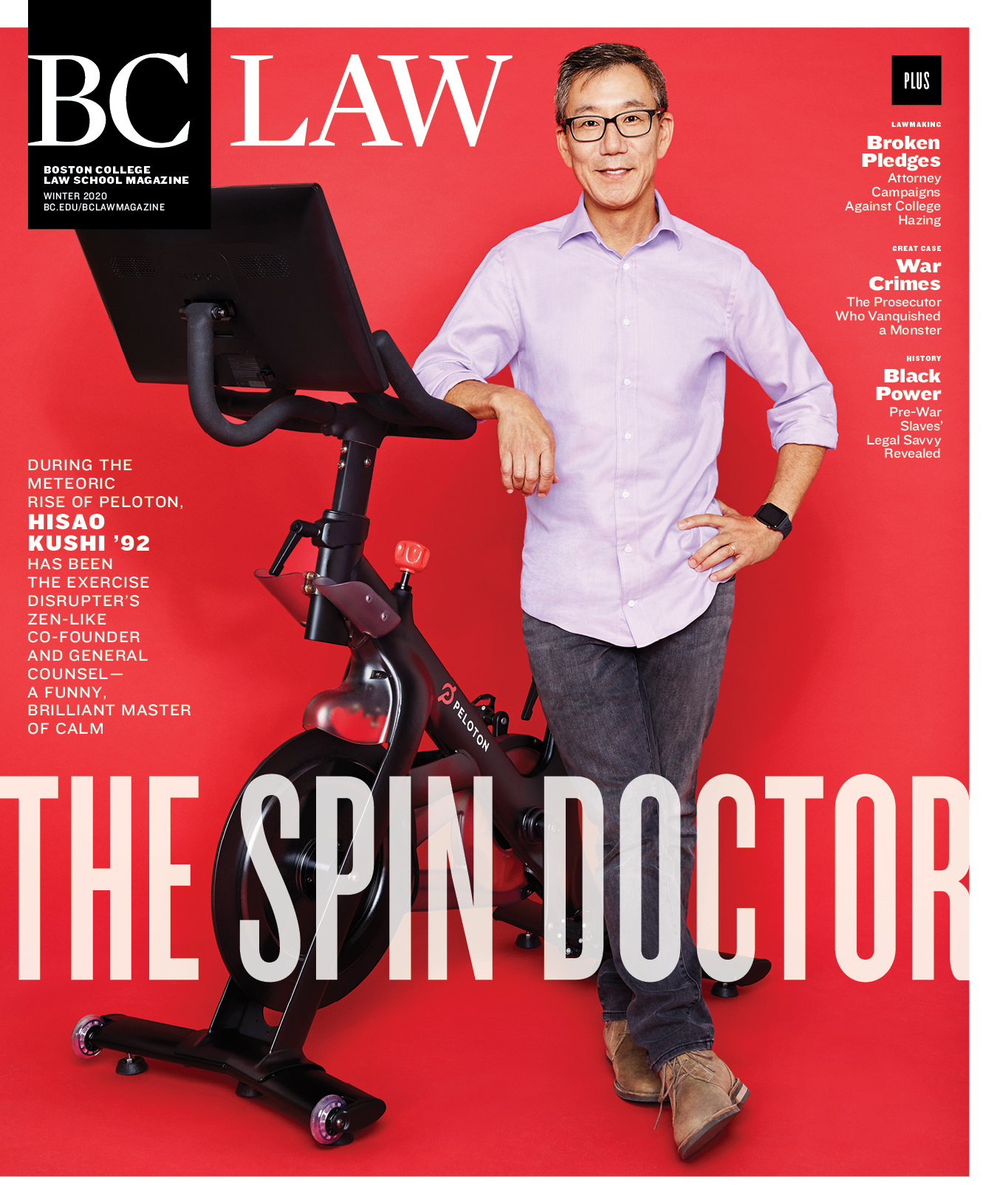Peloton is a company that makes a lot of noise. Its sleek machines smash the stereotype of home exercise equipment gathering dust in the basement, by streaming—in real time or on demand—interactive studio spin and treadmill classes in which chiseled, beautiful instructors preach about cadence and max heart rates and “stepping into your power.” They crank up the technopop or hip hop and exhort you to pedal or run till a puddle of sweat forms on the floor around you.
The goal, as one YouTube influencer writes, is to make exercise “so much damn FUN” that you won’t want to give it up. And it’s working: 96 percent of all Peloton bikes sold since 2014 still have $39-a-month subscriptions attached to them. People actually ride these bikes more over time rather than less. Users have created online forums and Facebook groups and endless Reddit threads to analyze their experience as members of the “Peloton family,” now 1.5 million members strong. They’ve formed deep personal online friendships and they frequently travel long distances to spend activity-filled weekends with one another, cramming as many studio classes as they can handle into each day. Some have even tattooed the Peloton logo onto their bodies.
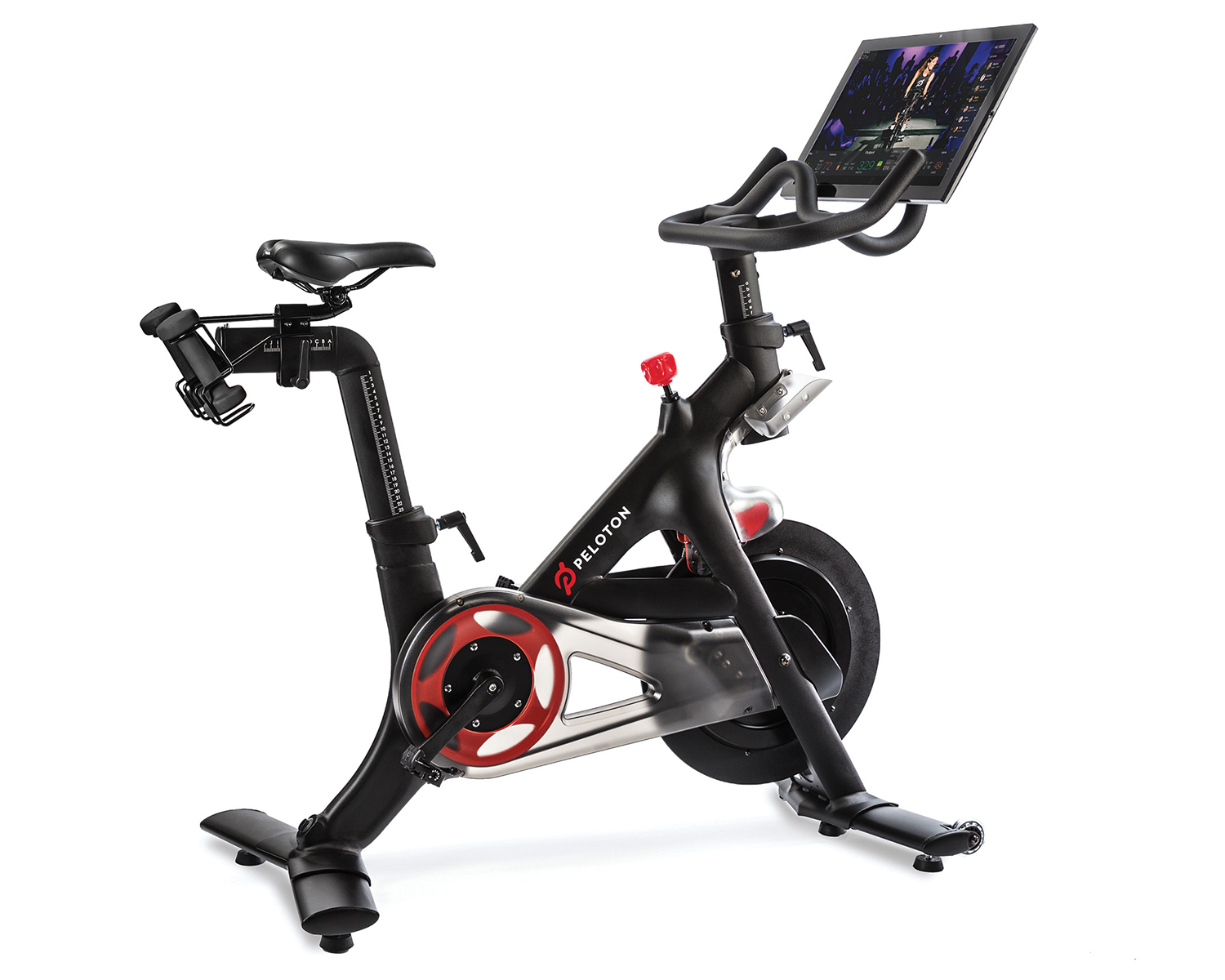
Hisao Kushi ’92, a founding partner and the company’s indispensable chief legal officer, seems to be the still point amid all the commotion. “He was the first call I made when I came up with the idea of the interactive bike,” says the company’s founding CEO, John Foley. “Not because he’s a lawyer, but because he’s an insanely quality human being whose business judgment and thoughtfulness I respect. The fact that he’s a lawyer was just gravy.”
Peloton got its start in 2012 because the spin classes Foley loved filled up too fast for him to get into. Last April he told “How I Built This” podcast host Guy Raz about his aha moment: “I said, if these classes sell out, these fifty bikes sell out in thirty seconds; if there was infinite room, would there be 500 people that wanted it?” Would there be 2,000, 50,000, 5 million who “would want that great instructor at that great time? And so it just started to scream ‘distributed technology.’”
Despite starting with less than a half-million dollars raised from family and friends, Foley and his founding partners managed to put together a total of more than $900 million over five rounds of venture funding, making Peloton what’s known in the investment world as a unicorn—a startup valued at more than $1 billion—even though at the time it had just 100,000 paying subscribers. Since then, the company has had the kinds of ups and downs that tend to plague newsworthy, industry-disrupting startups, including a less-than-stellar October IPO, a few hits to its stock prices, and the occasional advertising misstep. That competitors are beginning to flood Peloton’s space speaks to the company’s success as an innovator and a marketing powerhouse—“the Netflix of the workout world,” according to Forbes magazine. It continues to raise its profile, releasing lower-priced subscription apps that bring strength training, yoga, meditation, and outdoor workouts to your TV, smartphone, or Apple watch, opening more studios, and expanding its reach in Europe. Barron’s recently reiterated its “buy” advice for Peloton stock and raised its price target from $30 to $40.
Throughout, Kushi has perpetually exuded calm good humor and a sense of quiet control, like the hero in an action movie placidly strolling away from an explosion without so much as a glance over his shoulder. “He’s so solid and low-key,” says Netflix senior counsel Joel Goldberg, who graduated from BC Law with Kushi in 1992 and remains a close friend. “He never gets rattled. He’s just a very solution-oriented attorney who’s got an unbelievably good business sense and understanding of what’s important and what isn’t.”
What’s important to Kushi, according to Foley, one of Kushi’s best friends since they met while working together at the review site Citysearch in the late ’90s, is “integrity, intellect, kindness, compassion, responsibility, ethics, thoughtfulness, humility,” things not normally associated with the cutthroat world of tech startups. “He’s just the kind of person you don’t come across every day,” Foley says.
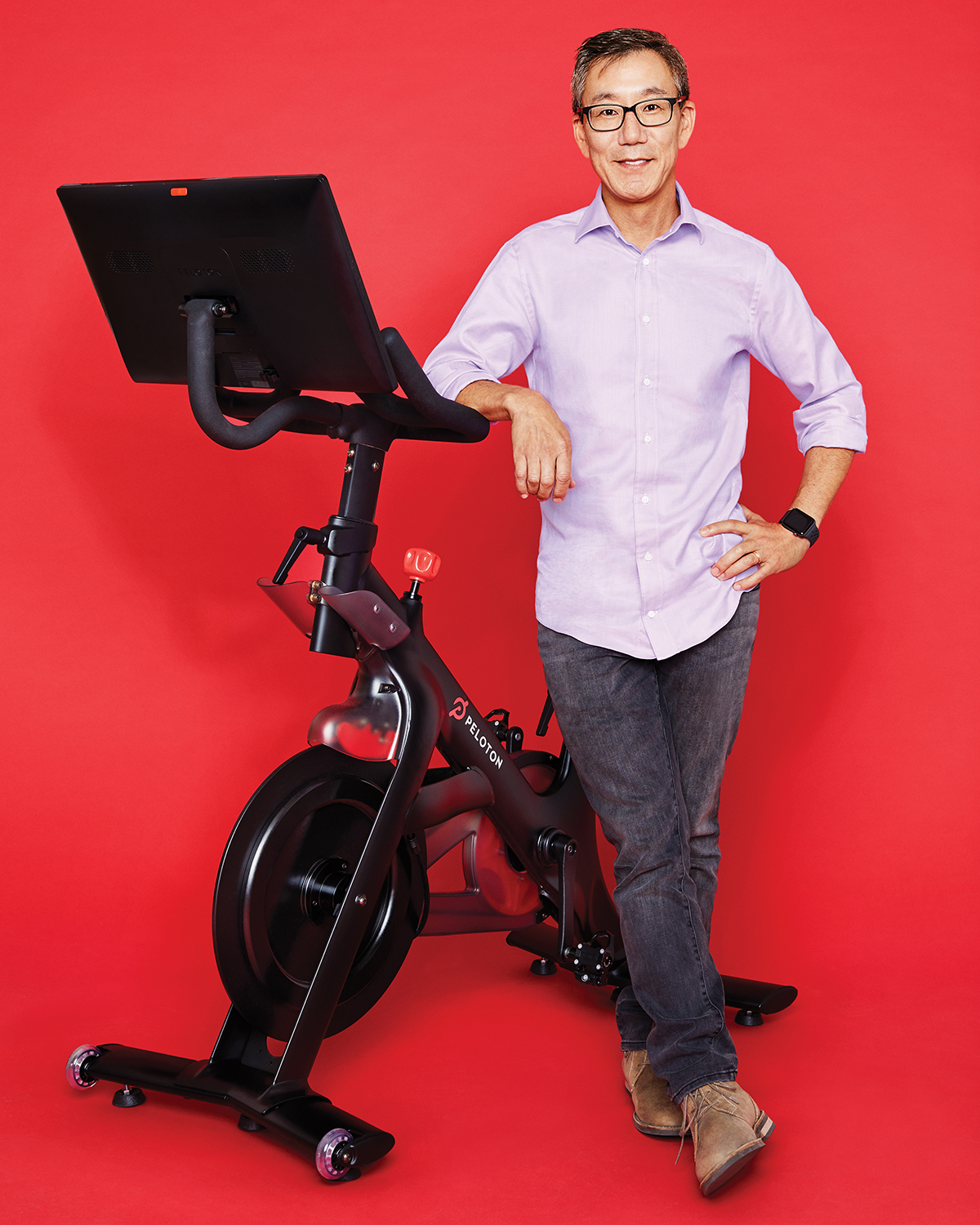
Despite starting with less than a half-million dollars raised from family and friends, Foley and his founding partners managed to put together a total of more than $900 million over five rounds of venture funding, making Peloton what’s known in the investment world as a unicorn—a startup valued at $1 billion—even though at the time it had just 100,000 paying subscribers.
Kushi’s sanguine approach to chaos is likely rooted in his childhood. He was born in Boston in 1965, the youngest by six years of five children whose parents were among the first Japanese nationals to come to the United States after World War II. Michio and Aveline Kushi were gurus of the natural foods movement who introduced macrobiotics—as well as other now-common elements of Japanese life, including shiatsu, aikido, and futons—to postwar America at what turned out to be the ideal cultural moment. By the time Hisao came along, the Kushis were key figures in the counterculture, attracting acolytes and celebrities by the thousands to their commune-like 11,000-square-foot Brookline house. “There were always twenty to twenty-five people living there,” Kushi recalls. “It was not your typical upbringing.”
In some ways, Kushi says, he was “incredibly fortunate” to grow up in such an atmosphere. His parents’ success gave him educational opportunities, including international travel at a young age—though he did attend public schools all the way through college—the luxury of taking a year off after his college graduation to decide whether to continue on to grad school, and the security to wait for the right job to come along once he got his JD. And then there were the perks, like hearing his father named on Stevie Wonder’s hit album “Songs in the Key of Life” and, oh yeah, that time John and Yoko dropped by for dinner. “Sean Lennon was in a bassinet,” Kushi recalls, “and I was like eight maybe. All of us kids were huge Beatles fans; we would go to Beatles conventions and all that stuff. I was pretty starstruck.”
Still, the backdrop was one of barely contained pandemonium. “Someone would pick up the phone and a friend would ask for me and they’d say, ‘I don’t know who that is,’” Kushi recalls. “That type of thing.” Movies were his refuge; he would sit slack-jawed through double features at Cambridge’s now-defunct Orson Welles Cinema and see the same film over and over again at the Coolidge Corner Theatre. He also cultivated “a great core group I’m still friends with to this day,” he says, “which on reflection probably provided some stability.”
Growing up in that “crazy household,” he says, made him long for a “normal life” as an adult. Today he and his wife, Karen, whom he met as an undergrad at UMass Amherst, live in Santa Monica, where they moved after college, partly for an adventure and partly so Kushi could pursue his dream of becoming a screenwriter, a dream he abandoned on the cusp of success in favor of a job as in-house counsel in Universal Studios’ internet group. “It was a steady job with benefits and a steady paycheck,” Kushi says, the light in his eyes almost perceptibly dimming at the memory. A few years later he found his tribe as general counsel for Citysearch, where “everybody was young and high energy and entrepreneurial minded, working on new challenges, new problems, pioneering new services and products, and trying to do stuff to disrupt the space.”
Today, he and Karen have two children—a boy and a girl—a little mutt named Percy, and, yes, a white picket fence around their modest 1,500-square-foot bungalow. But while Kushi’s life may have the trappings of normalcy, his desire to fit in has never extended to his turn of mind. “He was the first person who told me to question authority,” says Karen Kushi. “I went over to visit him at his house in Brookline once and he was doing this giant jigsaw puzzle. Not many college students do that sort of thing but you never know what he might be into. He’s definitely the most interesting person I’ve ever met.”
“Hisao may be one of the most interesting people in the world,” says Dion Camp Sanders, a longtime friend who in January 2019 joined Peloton as head of strategy. “But he doesn’t talk about himself in that way. You may learn things about him; they may come out, but he won’t tell you about them directly.”
A classic example came when Sanders and Kushi and their families were hanging out at Foley’s house one evening last year. When Foley’s teenage son brought out his guitar and started playing a Leonard Cohen song, Kushi joined in and, says Foley, “it was as if Leonard Cohen was in my house. It blew my mind.” After twenty-three years of friendship, he adds, “I didn’t know Hisao had a musical bone in his body.” When Kushi moved over to the piano and belted out Queen’s “Bohemian Rhapsody” with Foley’s daughter, “I almost fell out of my chair,” Foley marvels.
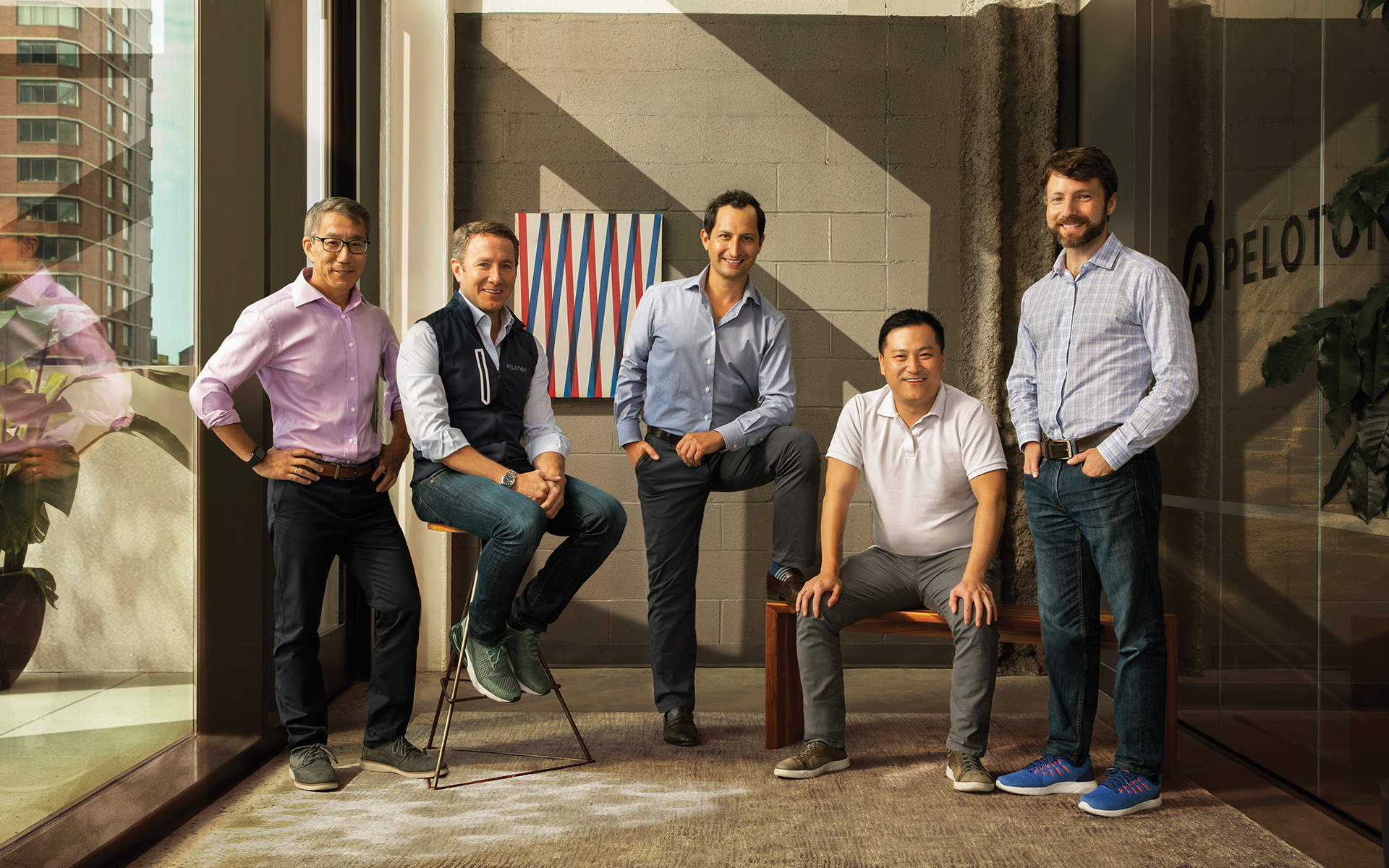
“The students you remember, like Hisao, are the ones who are original thinkers,” says Daniel R. Coquillette, the J. Donald Monan, SJ, University Professor, from whom Kushi took a legal history class. Coquillette has taught at BC Law for forty years, and has met a lot of students in that time. “He’s not formalistic. He approaches problems in a much more creative way. He could put a question into a context that the other students missed. That can’t be taught; it’s a natural talent.”
That creativity came in handy during Peloton’s development, which, for a corporate lawyer who dreads routine, was the motherlode of problem-solving. “We didn’t know anything about the fitness industry, or building hardware, or supply-chain logistics — which is very complicated, I’ve come to discover,” Kushi says. “Turns out in order to build something like this you have to first build the tools to build it. And you have to create software that reads information from the bike, pushes it to the cloud, and pushes it back to the bike in real time. That’s also complicated. Then you need fantastic instructors and effectively a TV production studio, and a fantastic retail experience, and a fantastic delivery and onboarding system. People were like, ‘You’re bananas if you think you can pull this off.’”
What does a lawyer know about any of that? Nothing, at first, but it doesn’t matter, says Foley. “Every single decision we make at Peloton,” he maintains, “I run by Hisao to get his instinct because he’s such a good, smart, strategic businessperson. He’s the best general counsel I can imagine, but as a cofounder and business partner he serves in a much broader role at the company.”
One reason for that is Kushi’s inherently outward orientation, which lends a win-win approach to his every interaction. “He’s much more interested in talking about you than in talking about himself,” says Goldberg, who paved the way for Kushi at Universal Studios and calls him “unbelievably fun to work with.” Kushi’s self-effacing style and lawyerly capacities allow him to deflect so well you may not even realize right away that you’ve been turned down. “When someone on the other side is fighting over something that Hisao knows is not that important,” Goldberg says, “it’s easy for him to make an accommodation that will buy him the goodwill to get what he needs.”
Kushi is the kind of lawyer, says Sanders, who asks the businesspeople what they’re trying to achieve and tries to help them achieve it in a way that doesn’t expose the company to inordinate risk. “Because he takes that tack,” Sanders says, “businesspeople innately trust him.” The team Kushi has built at Peloton, Sanders maintains, is one of the most trusted he’s ever seen. “They’re completely embedded in the business and they’re in every meeting. We businesspeople want them in the room with us because they’re thought partners who help us make better decisions.”
Having a sense of humor doesn’t hurt. “You don’t expect from such a humble, understated personality that he would be one of the funniest people you know,” says Foley, “but he’s able to thread that needle and in a self-deprecating way add levity and humor to almost every interaction.” Sanders recalls a presentation at which Kushi had to impress upon employees the importance of keeping mum about the pending IPO. “This was serious business,” says Sanders, “but he delivered the directive with such wit and humor that he had everyone rolling in the aisles laughing hilariously.”
Top-down, that kind of M.O. makes for some happy employees. “What John and Hisao together have done at Peloton is take some high-caliber talent and overlaid that with kindness,” says Sanders. “It has created an environment where people function well together and there are no turf battles. There’s no toleration for people who are jerks or want to hear themselves talk.”
Kushi’s mantra to “hire for attitude, train for skill” helped get the company a Glassdoor rating of 4.3 stars, and in an extensive employee survey last year, Kushi came in No. 1 among 100 Peloton managers in terms of teams loving their leader. There was no celebration, though, says Foley, “because it was no surprise to anyone.”
